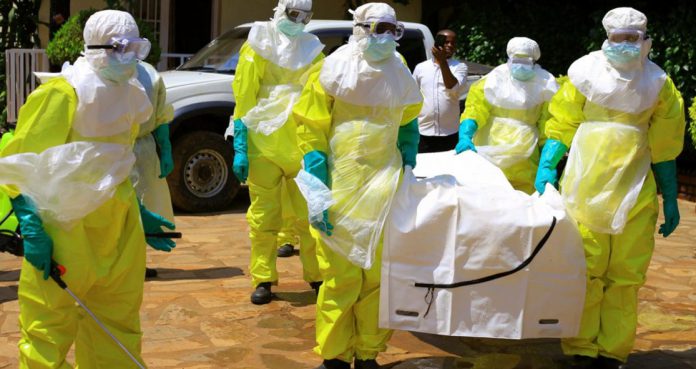It has been eight months and the Ebola outbreak in the Democratic Republic of Congo (DRC) has been spreading at its fastest rate, the World Health Organization (WHO) said on Monday.
For the past two weeks, the number of cases has increased, suggesting a great setback for every effort made to the second-largest Ebola outbreak ever, as community resistance and militia violence have hindered access to medical care in affected areas.
Noting that weekly cases had halved from earlier in the year to about 25 three weeks ago, the WHO said the DRC Ebola outbreak of the hemorrhagic fever was largely contained and the spread could be stopped by September.
However, the number of cases increased and hit a record 57 the following week, which then jumped to 72 last week, according to Christian Lindmeier, the WHO spokesperson. The organization found that previous spikes of 50 cases a week were documented in late January and November.
According to Congo health ministry data, over half of the deaths caused by Ebola last week occurred outside of medical care centers, which means there is a greater chance that they transmitted the infection to those around them.
“People are becoming infected without access to response measures,” Lindmeier told Reuters.
The officials said that the current Ebola outbreak is believed to have killed 676 people and infected 406 others.
Armed militiamen have attacked five Ebola medical care centers in the past two months, impeding access to treatment. That has also led French medical charity Medecins Sans Frontieres (MSF), or Doctors Without Borders, to suspend its activities in the two eastern provinces, Kivu and Ituri.
Another greatest challenge has been a mistrust among people of Congo. According to a survey conducted by The Lancet, more than a quarter of people residing in the most affected areas of DRC did not believe that the disease was real.
One medical care center that was shut down in February after being torched by assailants reopened last week.
Lindmeier said, “New approaches to community outreach were showing signs of progress and that some previously hostile local residents had recently agreed to grant health workers access.” The 2013-16 Ebola outbreak in West Africa claimed more than 11,000 deaths. Since then, public health officials have worked hard to speed up their responses. They wasted no time in deploying an experimental vaccine and treatments, which are considered safe and effective.






















